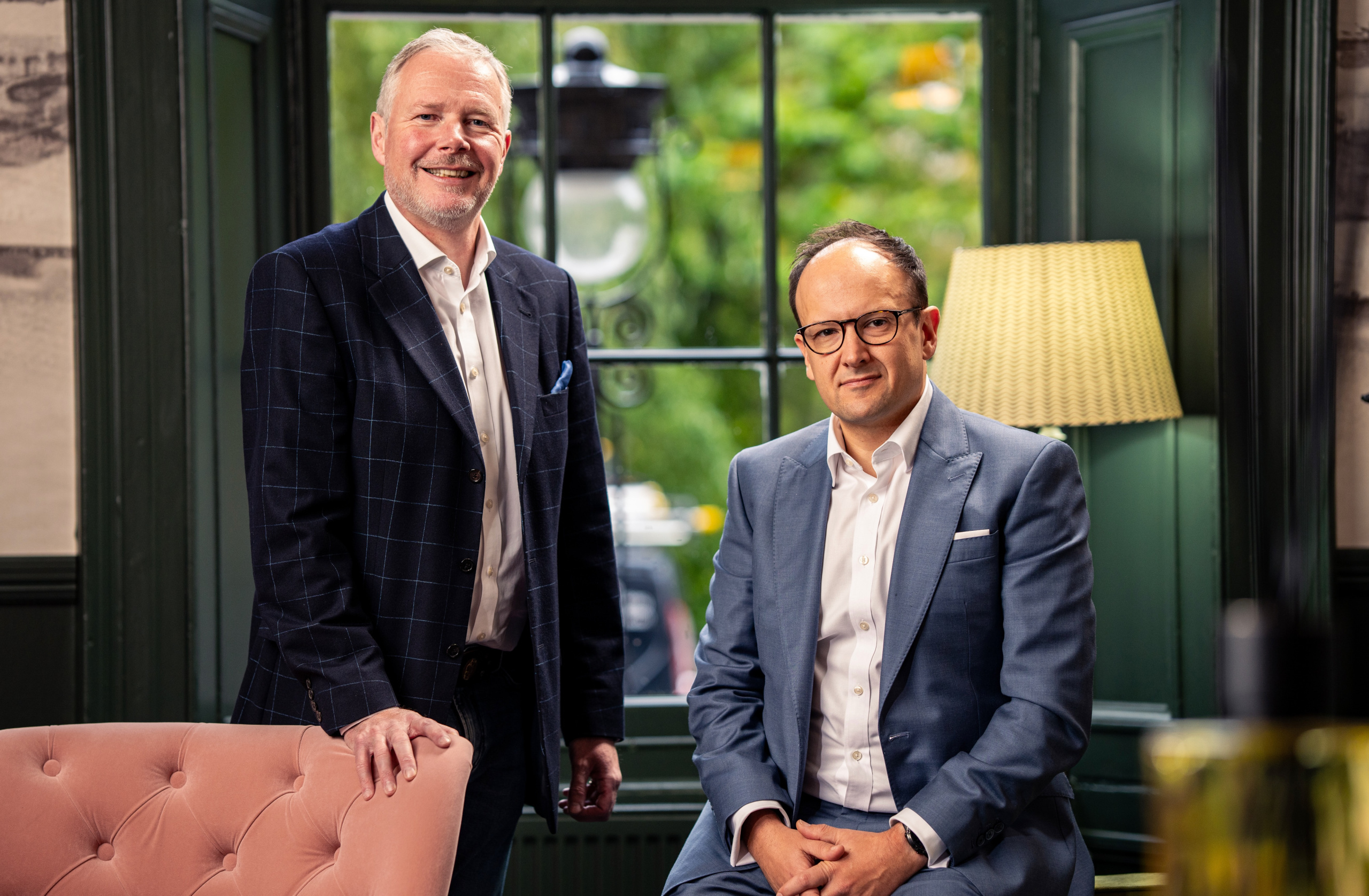If the UK’s prime minister and chancellor were to compile an identikit picture of a chief executive who best fit their vision for the future of corporate Britain, the result might look a bit like Greg Jackson of Octopus Energy.
Environmental credentials? Box ticked: Octopus invests in renewable energy projects and Jackson says green power can drive down bills. “We message customers to let them know that during a windy hour we’ll give them free electricity over and above their normal usage,” he says, adding that “everyone loves a bargain”.
Innovation? Tick: Kraken, Octopus’s software platform, which manages everything from customer service to individual household energy usage, has attracted interest and investment in the company from Al Gore’s sustainable energy fund, among others.
A bootstraps upbringing? Jackson was raised in Yorkshire by a single mother who, when she wasn’t working all hours to look after three children, was campaigning for nuclear disarmament and women’s rights. Those on the left in the UK government, such as Angela Rayner, whom Jackson met the day before this interview to discuss workers’ rights, would surely approve.
In the run-up to the UK’s summer election, Jackson’s was a view Labour sought as the party tried to strengthen its ties with business. “Both Keir Starmer [prime minister] and Rachel Reeves [chancellor] spent a lot of time meeting people like us.”
The rapid growth of Octopus explains why. Since it was founded by Jackson in 2015, the energy company has grown from virtual obscurity to become Britain’s second-largest household energy supplier, with more than 7mn electricity and gas customers. Acquisitions have helped, with Octopus absorbing 1.5mn Bulb customers in a state-backed deal two years ago after the latter collapsed, and last year adding another 1.3mn with the acquisition of Shell’s household energy business.
Jackson was a prominent critic of the lax regulatory environment that led to Bulb’s fall, as new companies were encouraged to enter the UK energy market without proper scrutiny. But Octopus’s own rise has irked its domestic rivals. A group including British Gas owner Centrica launched a legal challenge in 2022, arguing the government had unfairly favoured Octopus in the Bulb acquisition. The case was later dismissed.
Jackson attributes Octopus’s rise to poor customer service in the energy market, with more established providers traditionally bamboozling and infuriating their consumers with opaque pricing, acres of small print in contracts and long call wait times. Some negative online reviews show Octopus has not escaped customer criticism either but it is more highly rated than many of its rivals on sites such as Trustpilot. “If you phone Octopus, 95 per cent of the time the person you speak to can resolve your query there and then,” says Jackson. “They don’t have to put you through to other departments, they don’t have to put you on hold. With Kraken we’ve got a single, very modern system that joins everything up . . . whereas other companies have one department dealing with metering, one dealing with billing, one dealing with house moves, and so on.”
Octopus has become synonymous with its purple logo and there are cuddly toy versions of it dotted around its high-spec office in central London. There is a playfulness to the brand and how it communicates with consumers (smart meter customers can spin an online “Wheel of Fortune” to win cash credits, for example), which brings to mind the widely copied novelties Sir Richard Branson introduced to the long-haul flying experience with Virgin Atlantic. Like Branson, Jackson is unafraid of the limelight. When he appeared on Desert Island Discs last year, his choices included, unusually, the BBC Radio 4 shipping forecast and Kenny Rogers’ “The Gambler”.
Not that he plans to take too much risk with the company he built. “Most entrepreneurs I know are not lovers of risk, they’re lovers of control.” He takes the song as a warning to never rest on his laurels. “There’s a line that says, you never count your money when you’re sitting at the table. There’ll be time enough for counting when the dealing’s done.”
Octopus’s latest funding round valued it at about $9bn — a figure that would catapult the energy group straight into the FTSE 100 if it were to seek a public listing. Jackson owns a stake of close to 5 per cent; other shareholders include Tokyo Gas and the Canadian Pension Plan Investments.
But Octopus is also a tech company and not just because the dressed-down Jackson usually wears the de rigueur black T-shirt of a tech CEO. Kraken is licensed to Octopus’s rivals, with EDF among those using the platform, and is now available to other utilities. Several UK water companies, including Severn Trent, are also customers.
Kraken puts Octopus into the world of enterprise software, which is dominated by global companies such as SAP and Salesforce. They are many times larger than the groups battling it out for supremacy in UK energy supply. “Who do you think Greg would rather be — Centrica or SAP?” a rival asked me. Does Jackson consider Octopus an energy provider or an enterprise software group? “We’re neither and both . . . We’re more Amazon or Uber. Each of them has created software platforms that enable them to reinvent their sectors. Uber isn’t just Addison Lee with software. And Amazon isn’t Argos with better software.”
Jackson has a background in technology, having left school at 16 to code a computer game on his ZX Spectrum, a machine so basic its ancient games took up to 45 minutes to load by cassette tape. (It was a shortlived foray and the resulting professional wrestling game he wrote wasn’t any good, he says).
After returning to education to take A-levels, he read economics at Cambridge and embarked on a business career, which included four years at Procter & Gamble, starting several tech companies and a stint running a mirror manufacturer.
I wonder how much of an influence his campaigning mother had on his career. “Quite early on I realised that business gives you a route to innovation. So instead of campaigning you just do stuff. And I’ve always loved just doing stuff.
“Every customer you sign, every turbine you build, every client that licenses your software, you’ve got a tangible result. I think that’s how you change the world.”
But surely a true environmentalist would not be working with water companies, given their habitual fouling of UK rivers and coastlines with raw sewage? “No one is going to get any better if they don’t rely on modern technology,” says Jackson, carefully. “It means you can be more efficient and spend the money on the stuff that really matters.”
Kraken has also signed up a broadband provider and other utilities may follow. But despite the prospects for growth, there are plenty of potential pitfalls looming. Winter is coming and, in the UK, electricity prices are increasing because of the raising of the government’s energy price cap. A recent move to means test a winter fuel payment previously given to all UK pensioners has sparked fears that poorer retirees may go cold.
The UK government has said people who miss out on the payment will qualify for pension credit. Jackson added recently that energy companies should be prepared to help; Octopus has a £30mn “assistance fund” that will be used to help pensioners this winter. It has previously provided 20,000 free electric blankets.
Jackson says more renewable power is possible but not without reforming how batteries and wind farms connect to the electricity grid. “We need to reform grid connections so we can connect new [power] generation quickly. We’ve got a solar farm in County Durham, and it’s going to be waiting 13 years for its connection. It’s utterly mad.”
He supports Labour’s proposals to reform the planning system so more renewable energy sites can be built. And he wants to improve energy pricing. He advocates “locational pricing” so regions that produce more renewable energy would benefit. Scotland, with its plentiful wind, “would have the cheapest electricity in Europe”.
What about the company’s future? It has continued to expand with private investment but Jackson’s contacts in the new government would surely approve if Octopus were to publicly list in London. It certainly looks like it is ready — it reported its first annual pre-tax profit of £283mn in the year to April 30 2023 and has appointed experienced City figures to its board: Gavin Patterson, the former chief executive of BT, is chair of Kraken Technologies, for example.
Jackson is lukewarm about the prospect. “We’ve never had a shortage of capital” and Octopus shareholders “continue to back long-term investment”. “A number of international stock exchanges have reached out to form relationships with us,” he says. “We have no immediate plans to go public” while a London listing “is not really something we’ve looked at”. This won’t delight Reeves et al. But, with Jackson and Octopus banging the drum for the energy transition, you suspect they won’t mind too much.









































































































































You must be logged in to post a comment Login